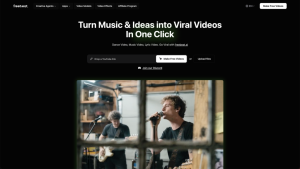There was a time when reputations were built in person—handshakes, résumés, referrals. Today, they begin with a Google search. Before someone reads your bio or views your work, they’re scanning your name online, scrolling through your tweets, clicking your LinkedIn, and checking the top five search results.
One offhand comment, a dated blog post, a photo from college—these fragments often carry more weight than your actual qualifications. And once they’re indexed, they stick. That’s why individual reputation management has shifted from a nice-to-have to a career essential. It’s not about ego. It’s about control. Visibility. Longevity.

Why Individual Reputation Management Is Becoming a Career Essential
Your Digital Footprint Is Already Out There
Every time you post, comment, like, or even browse, you leave behind traces of yourself. Most people don’t think twice about it—until those traces become search results.
There are two types of digital footprints. Active footprints are what you choose to share: tweets, Facebook posts, product reviews, forum comments. Then there are passive footprints—the things you don’t realize are being tracked, like browsing behavior, cookie data, or metadata attached to the platforms you use.
And whether you’re job hunting, building a business, or just trying to maintain credibility in your field, both kinds matter.
You don’t need to be perfect online, but you do need to be aware. Tools like Google Alerts can help you monitor when your name appears. The more you know, the better prepared you are to respond, update, or course-correct.
Social Media Is a Double-Edged Sword
Your Instagram caption from 2018 may not reflect who you are today—but for someone scanning your name online, it could be the only thing they see.
More than half of employers say they’ve changed their mind about a candidate based on social media alone. And that decision isn’t always about politics or outrage. Sometimes, it’s just about tone. Or inconsistency. Or the feeling that your public profile doesn’t match the role.
The solution isn’t to scrub yourself clean of personality. It’s to audit regularly. Ask: What does this say about me now? What would a client or hiring manager assume from this post?
Social tools like Hootsuite can help schedule and track your content, but the real work is personal. It’s about sharing with purpose, deleting what no longer represents you, and choosing when to speak—and when to hold back.
The Power of Personal Branding
You already have a personal brand. The question is whether it’s working for you or against you.
At its core, personal branding is about clarity. What do you stand for? What are you good at? What do you want to be known for? When those answers come through in your online presence, people trust you faster—and that trust opens doors.
It’s not about creating a polished persona. It’s about aligning your values, strengths, and communication into a version of yourself that’s consistent across platforms. Whether someone finds you through LinkedIn, your website, or a conference bio, they should see the same person.
Start by identifying your core themes. Then build around them: a personal site, an updated LinkedIn profile, a portfolio, or regular posts on relevant topics. Tools like Wix or Canva make this easier—but what really matters is message over flash.
Take John, for example. He was a mid-level marketing manager with little online presence. After building a simple portfolio site, cleaning up his socials, and posting weekly marketing tips on LinkedIn, he didn’t just attract followers—he got promoted.
Consistency Builds Trust
Brands don’t earn loyalty through one good ad. They earn it by showing up the same way, day after day. The same goes for individuals.
If your LinkedIn looks polished but your Twitter is chaotic, or if your website bio reads like someone else wrote it, you create doubt—even unintentionally. And doubt erodes trust.
Creating a consistent brand means aligning the look, tone, and content of everything people might see. Your headshots, bios, color schemes, and messaging should feel like they belong to one person—not five versions of you from five different years.
You don’t need a full-time designer to do this. Canva can help unify your visuals. A quick Google Doc can serve as your brand guidelines. Just ask yourself: If someone only sees my top three platforms, what impression do they get?
Why This Matters More Than Ever
It’s not just about aesthetics or likes. Reputation affects opportunity.
70% of employers now consider online reputation a key hiring factor. A CareerBuilder study showed that most hiring managers have rejected candidates due to what they found online—and many say they’ve offered interviews based on a strong personal brand.
Whether you’re applying for a job, pitching a client, or reaching out to a new connection, your online presence does the introduction for you. It either reinforces your credibility or quietly undermines it.
Reputation Shapes Your Network Too
Opportunities don’t only come through applications—they come through people.
When your reputation is strong, people recommend you. They remember your name. They tag you when opportunities come up. But that only happens when your digital presence backs up your real-world strengths.
Networking today starts before you ever meet. A potential collaborator hears your name and Googles it. They scroll your LinkedIn. Maybe they follow your posts for a week before they reach out.
If what they find is consistent, thoughtful, and aligned with your expertise, you’ve already made the first move.
Managing Your Reputation: Who Can Help
You don’t need to manage your online presence alone—but you do need a strategy. For many individuals, especially those in the public eye or navigating career shifts, working with a reputation management firm isn’t just smart—it’s necessary.
Companies like NetReputation and InternetReputation specialize in helping individuals monitor, protect, and improve their online presence. They combine human expertise with advanced tools to track search results, flag negative content, remove harmful links when possible, and publish high-quality content that reflects who you really are.
Whether you’re dealing with outdated information, unflattering news coverage, or simply want to build a stronger digital foundation, these firms offer:
- Search result analysis to see what others find when they Google you
- Content suppression strategies to push down harmful links
- Professional profile building to strengthen your online credibility
- Personalized monitoring so you’re never caught off guard by a negative mention
Unlike DIY tools, firms like NetReputation take a comprehensive approach—one that combines SEO, PR, legal pathways, and reputation strategy tailored to your goals.
If your reputation is too important to leave to chance, it’s worth having experts in your corner. A search result may feel small, but it can shape how you’re seen—and what comes next.
Where It’s Headed: The Future of Individual Reputation Management
This isn’t going away. In fact, it’s becoming more complex.
AI tools like Lexalytics can scan sentiment across thousands of posts and comments, flagging reputation risks before they go public. Services like Brand24 monitor mentions in real time. Reputation management is moving from reaction to prediction.
At the same time, expectations are shifting. People want transparency. They don’t expect you to be perfect—but they want to feel like they’re seeing the real you. That’s where authenticity becomes an asset, not a liability.
The future belongs to those who can blend strategy with sincerity—who can show up consistently without losing their voice.
Final Thought: You Are the Brand
Reputation used to be something you heard about secondhand. Now, it’s what people see first.
If you want control over your career, you need control over your name. Individual reputation management isn’t about self-promotion. It’s about alignment. It’s about making sure the person they find online matches the person they’re about to meet.
In a world where a search bar can shape your future, this isn’t optional anymore—it’s essential

fashionabc is a fashion technology platform, comprising a digital directory and various other digital tools and supply chain solutions for the fashion industry ecosystem, that focus on ethical fashion and sustainability. We are building inclusive digital transformation tools for fashion professionals who are willing to take steps towards a more sustainable ethical fashion industry, by adopting AI and DLT blockchain technology.
* building digital profile and IP solutions for fashion businesses
* tackle issues such as provenance and counterfeit in supply chain
* contribute to the construction of a meritocratic ethical fashion industry which is certified and part of the circular economy











